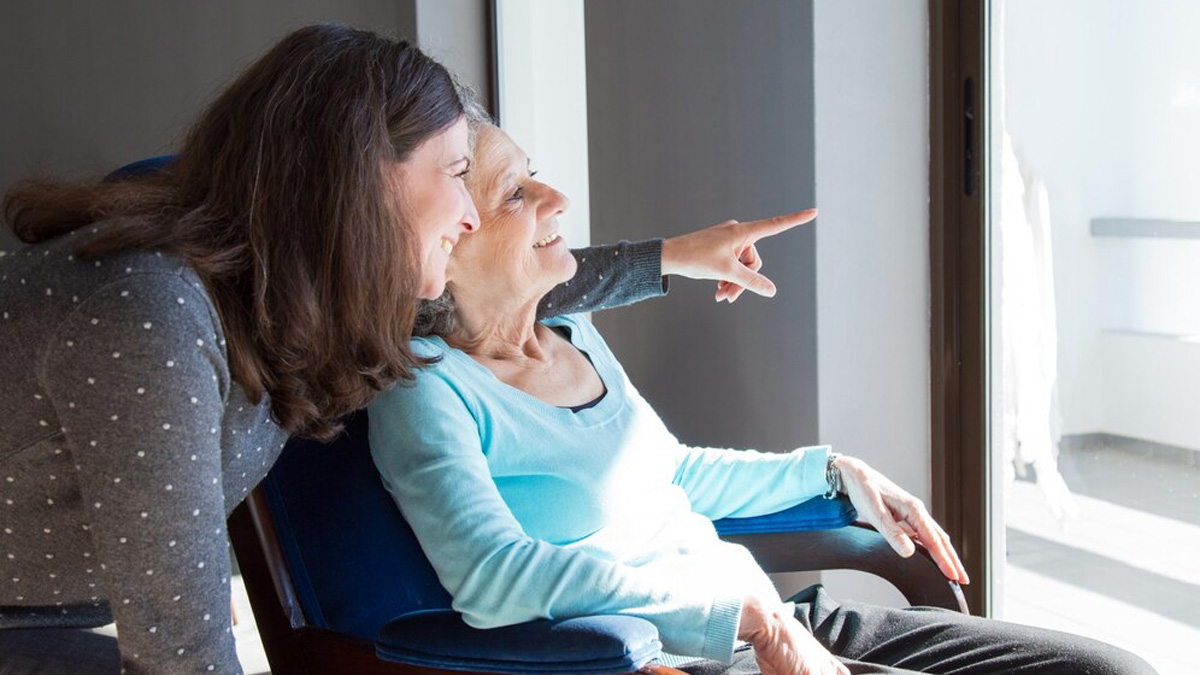
Dementia, an umbrella term for a range of cognitive impairments, is a challenging condition for those affected and their caregivers. Adopting dementia care best practices becomes more important as we age since dementia is more common than we realise. The quality of life for people with dementia is improved when the proper care is given in a compassionate and understanding manner, which also supports the families of those people. Here, we look at a few crucial guidelines for dementia care.
Table of Content:-
1. Person-Centred Care
The idea of person-centred care is at the core of best practices for dementia care. Every person with dementia has a different background, personality, and set of demands. Care must be tailored to each individual's needs, preferences, and capabilities. It can be easier to establish a welcoming and interesting workplace if you are aware of their background, interests, and hobbies.
2. Effective Communication
According to Mr Sanjeev Kumar Jain, CEO and Founder of Nema Eldercare, communication abilities are frequently hampered by dementia. Care- givers need to change the way they communicate. It is possible to improve understanding and lessen annoyance by using straightforward language without much use of pronouns, keeping eye contact, and using non-verbal clues like gestures and facial expressions.
Also Read: Sitting For Over 10 Hours A Day May Increase Your Risk Of Dementia Study

3. Safety First
Accident risk can rise as a result of confusion and disorientation brought on by dementia. Making a safe place to live is crucial. To assure the person's safety, remove trip hazards, put in handrails, and think about wander detection devices.
4. Routine and Familiarity
For persons with dementia, creating a reliable daily schedule offers a sense of security and predictability. Maintaining recognizable settings and habits helps ease anxiety since familiarity can be pleasant.
Also Read: From Memory Loss To Disorganisation, Neurologist Shares Early Signs Of Dementia
5. Cognitive Stimulating Activities
Cognitive decline can be slowed and mood can be elevated by engaging in activities designed for the individual's cognitive capabilities. It has been demonstrated that activities like puzzles, reminiscence therapy, and music therapy are helpful.
6. Nutrition and Hydration
Proper nutrition and hydration are essential. Individuals with dementia may forget to eat or drink, so regular reminders and easy-to-eat, nutritious meals are crucial to maintaining their well-being.
7. Patience and Compassion
Dementia care can be challenging, and patience is a virtue. Caregivers should approach situations with empathy and understanding. Redirecting rather than confronting behaviour issues can help maintain a peaceful atmosphere.
8. Support for Caregivers
Dementia caregiving can be emotionally and physically taxing. Caregivers should seek support, whether from professionals, support groups, or respite care services, to prevent burnout.
Also Read: Expert Explains Difference Between Alzheimer's Disease And Dementia

9. Medication Management
For individuals with dementia, medication management is vital. Caregivers should take medications correctly and be aware of potential side effects and interactions.
10. Continuous Education
Understanding dementia's progression and evolving care techniques is essential. Regular training and education for caregivers help them adapt to changing needs.
In summary, dementia care best practices revolve around respect, understanding, and flexibility. As our knowledge of dementia evolves, so do our approaches to care. By adopting these best practices, we can provide individuals with dementia the support they need to live as comfortably and independently as possible while offering their families peace of mind and assurance that their loved ones are receiving the best care possible.
Also watch this video
How we keep this article up to date:
We work with experts and keep a close eye on the latest in health and wellness. Whenever there is a new research or helpful information, we update our articles with accurate and useful advice.
Current Version